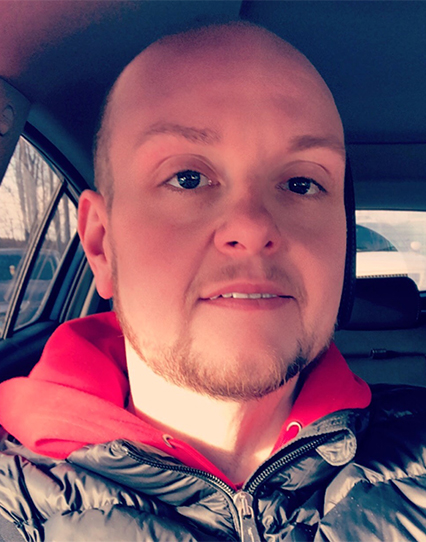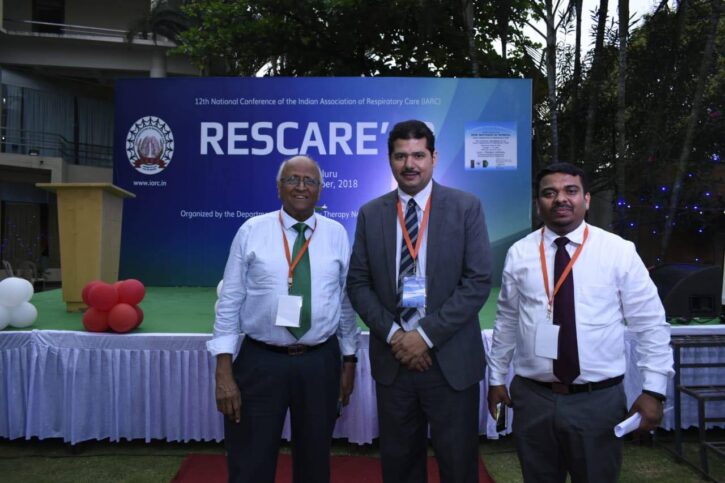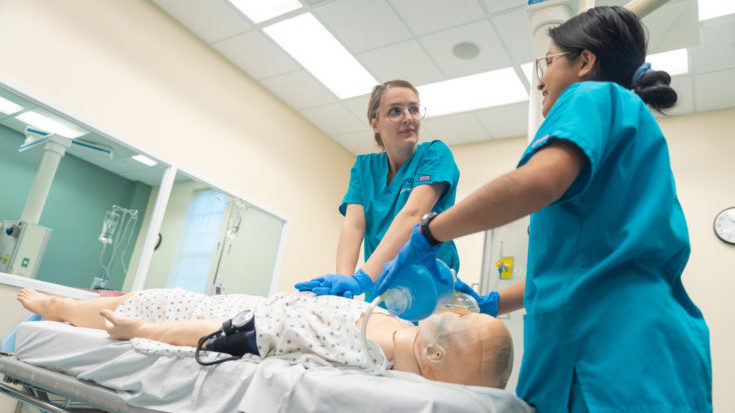
This month in our Breaking Through the Excuses series, we’ll learn how Christopher Price, BS, RRT, RRT-ACCS, is advancing his degree.
Christopher’s Story

Price has been an RRT for almost 12 years. In August of 2016, he obtained his Adult Critical Care Specialist (ACCS) credential from the NBRC. His higher education journey started in 2008 when he decided to return to school to obtain his Bachelor of Science degree in health administration (BSHA) from the University of Phoenix.
But he wasn’t done.
In 2018 he will graduate from Canisius College with a Master of Science degree in respiratory care with a focus on education.
Balancing work and school
“I faced many obstacles in obtaining my Bachelor of Science degree,” Price said.
One of the obstacles was his full-time job.
“I worked 40 hours a week while attending school,” Price said. “While most ‘normal’ young adults were out with friends on the weekend, I was writing a research paper or responding to classmates in a discussion forum.”
Price feels that a majority of people think that going to school online is easy.
“I would politely disagree with them,” he said. “Even though I had professors, I had to learn the material on my own and learn how to apply it in my everyday life. I studied harder and learned self-discipline during my time at the University of Phoenix.”
Lack of encouragement
The other obstacle Price had to overcome was a lack of support and encouragement from his fellow RTs.
“In the respiratory therapy profession, we are striving to be recognized as a profession instead of an allied health profession,” Price said. “In order to achieve that we must move forward and advance our entry-level degree/credential requirement.”
Price explained that entry-level requirements for the profession have not changed in decades.
“I firmly believe the future is a bachelor’s degree and the RRT credential for entry into our profession,” Price said.
Making it personal
“I overcame these obstacles by realizing that obtaining my BSHA and MSRC was not only a professional goal but a personal one,” Price said. “This was something I wanted to do to help advance the respiratory care profession but also something I wanted to do for my own personal growth.”
Price is the second member of his family to obtain a bachelor’s degree and will be the first family member to obtain a master’s degree.
“When I realized that these were my goals and intentions, it was easy to overcome,” Price said. “My advice for those just beginning their journey: set goals, set a timeline (mine was to have a master’s degree by the time I am 35), stay positive, and achieve the goals you laid out. Once you know why you are returning to school it makes the time fly by and your goals achievable.”
Member benefits
Price credits the AARC for helping him tremendously in the years he has been a respiratory therapist.
“The ACCS prep course helped me to pass the credentialing exam as well as help me keep up to date on best practices in the intensive care unit. The Critical Care section on AARConnect gave me a forum to go to if I had questions regarding best practices in researching material for my thesis and gave me a sounding board to run ideas by other respiratory therapists who have been in game for some time,” Price said. “With my busy work and school schedule, the AARC also provided me with the CEUs I needed to maintain my professional license because they offer many CEUs for free to AARC members. The AARC had helped me in many ways during my journey in achieving my higher education degree.”
Tips for Advancing Your Degree
Stay tuned next month as we meet Bethelhem Markos, a respiratory therapy student on the road to earning her graduate degree.
Email newsroom@aarc.org with questions or comments, we’d love to hear from you.















